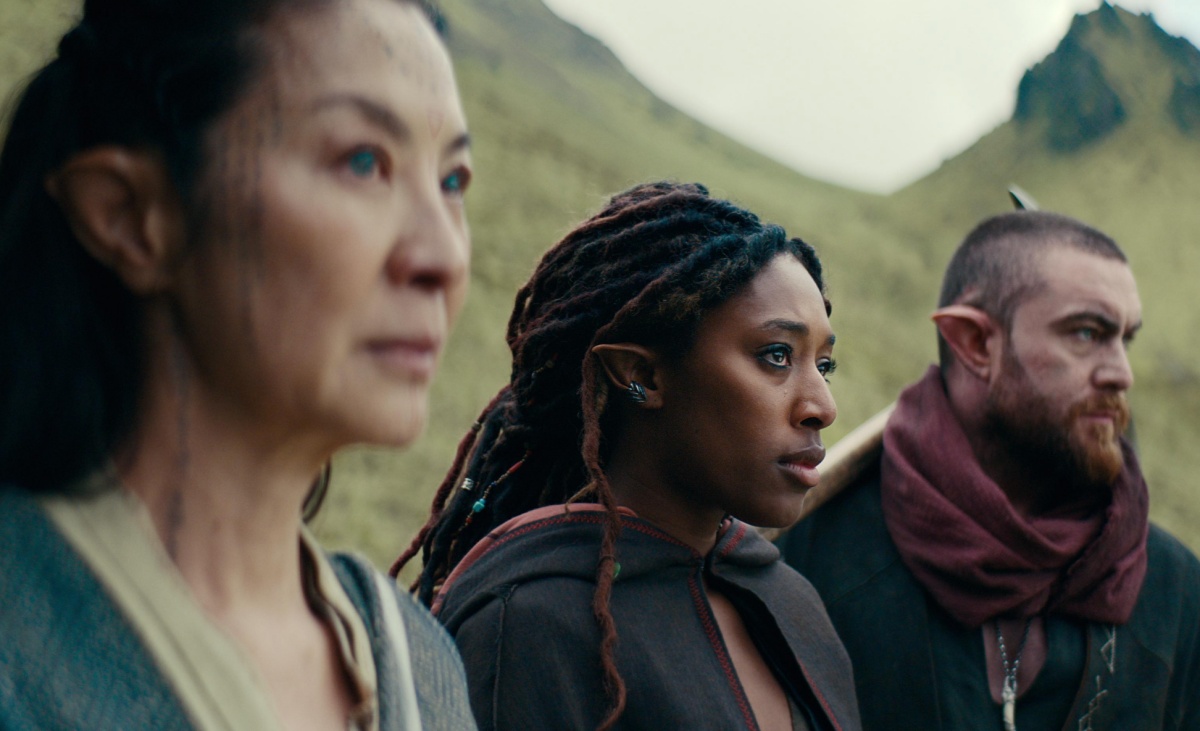‘The Witcher: Blood Origin’ and the Flattening of Fantasy

Reviewers have not been kind to The Witcher: Blood Origin, with critics calling out its meaty cast of characters but too short of a runtime to develop them all. As the first non-Henry Cavill-led Witcher live-action project, we will see how audiences respond when it drops on Christmas Day. I have seen Blood Origin and my feelings are mostly in line with the critics, but I plan to re-watch it to form a fuller opinion. But this article is less about that and more about how The Witcher series looks.
There has always been a disconnect between readers and fans of The Witcher series (both the books and the games) and the show itself. That division only grew when Cavill announced his departure from the role of Geralt of Rivia, the titular Witcher. As someone who both gets frustrated with bad book adaptations and hates people complaining about race-swapping, I was reluctant to get into the series. Still, I like to be informed, so I started reading The Witcher series earnestly and playing The Witcher 3: Wild Hunt. Despite only being a tiny bit into both, it’s evident that the show distills aspects of the characters into fantasy elements that feel more Game of Thrones-like than allowing it to have its own vision.
Adult fantasy is challenging in many ways because of the very similar kinds of stories we’ve seen adapted. They tend to be Western European Medival Fantasy, and even when they try to diversify it, everyone sounds British. And for the average viewer, this is mostly fine. I enjoy generic fantasy if it is fun and there is exciting world-building. As a show, The Witcher does largely stand on its own. But when you engage with the other mediums, you can see how they took some of the elements they knew would be popular and missed out on some of the more minor details. For example, I’m glad they gave Yennifer more to do and a fleshed-out backstory, but that “more to do” was her losing her powers for an entire season and undermining her mother-daughter relationship with Ciri. By removing the monster-of-the-week hunter aspect of it, you miss out on the chance to explore the world more and are just getting insight through monologues or specific over-arching plots.
Related: The Witcher: Blood Origin Is a Bloody Mess on The Escapist
Even The Witcher: Nightmare of the Wolf—which I enjoyed—decided to deconstruct the heroic but morally grey image of the Witchers by having some be responsible for the ills locals thought about them, rather than it being the result of xenophobia, bigotry, and a feeling that Witchers were no longer necessary. Those are some minor changes that turn the fabric of the series into something we’ve seen repeatedly. Not because the story is terrible or even derivative, but by trying to reach a broad audience, you can sometimes lose the things that work.
Blood Origin, in my opinion, thinks that we need all this backstory and character-building work to expand The Witcher, when it is okay to keep the focus on Geralt, Ciri and Yennifer. Expanding to include characters that do not really add anything to the world we are presently living in is unnecessary. People want to watch The Witcher to see The Witcher, not other characters—even if they are played by living legend Michelle Yeoh.
We need to figure out how to make fantasy series that are not afraid to lean into non-traditional storytelling. Monster-of-the-week stories with character growth can be successful on their own without leaping right into an overarching storyline. But that’s just me. I still really like The Witcher series, but I think it is largely its own beast. That will always be strange for fans, but I think it would stand better on its own if it took those concepts from the story and played with them more. We can have diversity and also green dryads.
I look forward to seeing what everyone thinks once it comes out.
(image: Netflix)
Have a tip we should know? tips@themarysue.com